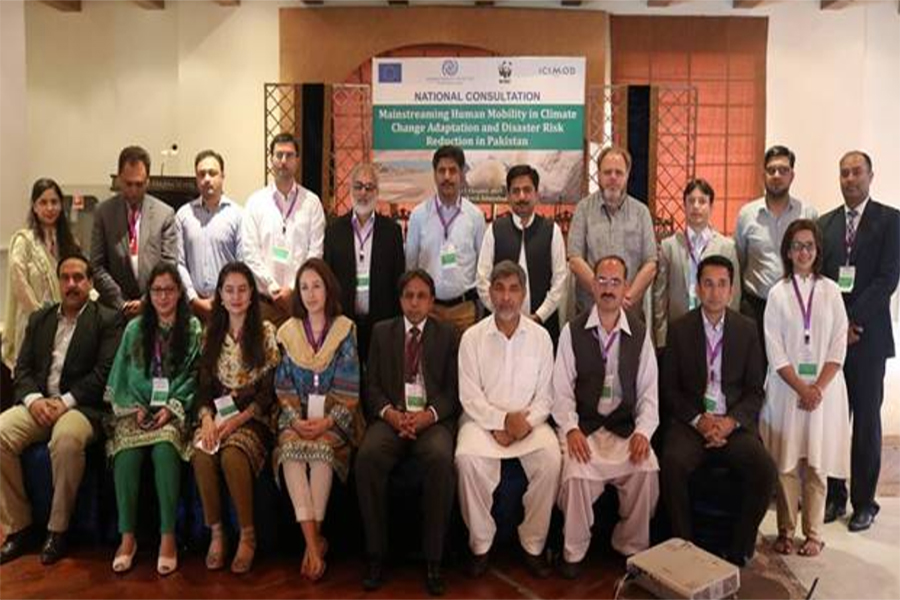Mainstreaming Human Mobility: Experts Stress On Shared Mobility
Increasing human mobility in Pakistan and throughout South Asia has a complex association with other important aspects of development in the region, such as climate change, sustainability, and disaster risk reduction. For this reason, experts and policymakers convened in Islamabad this week to share ideas and research regarding the important relationship between development, human movement, and natural resources.
The Global Climate Risk Index for 2017 ranks Pakistan seventh on its list of countries most affected by natural hazards from 1996–2015. The country’s diverse topography, coupled with variations in the climatic conditions across regions, makes it highly susceptible to natural hazards. Several factors influence Pakistan’s ability to anticipate and bounce back from disaster – factors such as poverty, intense pressure on natural resources, ineffective urban planning measures, uneven development in disaster prone areas, and insufficient awareness regarding disaster risk.
Human mobility manifests in various forms in communities affected by disasters and environmental change: evacuation, planned relocation, migration as adaptation, temporary or protracted displacement, and internal or cross-border movement, among others. However, human mobility continues to exist in the periphery of policy discourse associated with climate change and disaster risk reduction.
A workshop entitled, “National Consultation on Mainstreaming Human Mobility in Climate Change Adaptation and Disaster Risk Reduction Plans,” was organized at Serena Hotel in Islamabad, Pakistan from 16–17 October. The consultation provided a platform for stakeholders to share their experience of human mobility in the context of disasters and climate change; to identify gaps in capacity, knowledge, and policy; and to explore means to synergize ways in which different national institutions address human mobility in policies on climate change and disaster risk reduction.
Rab Nawaz, Senior Director, Programmes, the Wold Wildlife Fund (WWF); Abdul Wahid Jasra, Country Representative, the International Centre for Integrated Mountain Development (ICIMOD); and Eric Peasah, Humanitarian Operations Manager, the International Organization for Migration (IOM) Pakistan, emphasized the need to integrate human mobility in climate change adaptation (CCA) and disaster risk reduction (DRR) plans.
Shehzad Hassan Shigiri, Director, Gilgit Baltistan (GB), the Environmental Protection Agency, acknowledged the efforts of WWF-Pakistan (WWF-P) and ICIMOD in the Gilgit Baltistan and Chitral regions to highlight this emerging issue and assist in the formulation of the ‘Climate Change Strategy and Action Plan for Gilgit Baltistan 2017’, which also discusses human mobility and remittances. The document is currently with the GB Council for final approval. Shigiri emphasized on taking measures at the national level to leverage the need for incorporating human mobility in CCA and DRR plans.
The workshop concluded with recommendations to improve inter-agency coordination on human mobility, mobilize funding at different administrative levels, and strengthen institutional capacities for better governance.
The national consultation was co-organized by WWF-P, ICIMOD, and IOM as a follow-up to the regional knowledge forum, ‘Human Mobility in the Context of Climate Change Adaptation, Disaster Risk Reduction, and Sustainable Development Goals (SDGs) in the Hindu Kush Himalaya’, organized in Kathmandu in September 2017.

